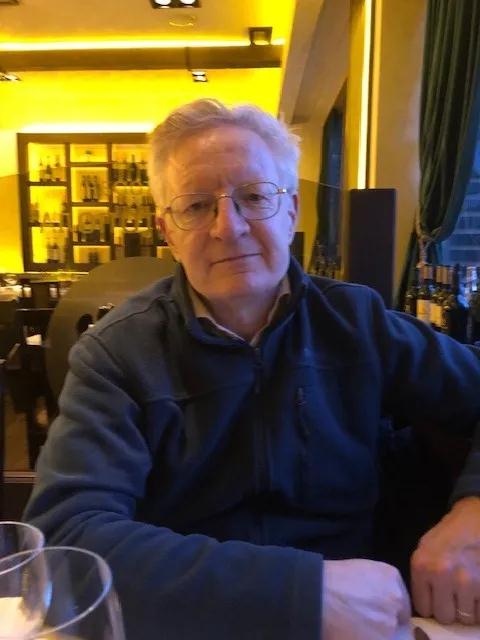Timothy Williamson教授“哲学的方法”系列讲座
Common sense consists of the knowledge, beliefs, and ways of thinking generally accepted in a particular society, or by humanity as a whole, at a particular time. Some common sense beliefs are false but many are true, and there is much common sense knowledge. Every species of intelligent animal needs knowledge of its environment to survive; curiosity is a natural appetite for knowledge. Children ask questions, which are often deep or general enough to be called ‘scientific’ or ‘philosophical’. Although philosophy begins in common sense, it does not end there. It goes further, and sometimes corrects errors of common sense. Sometimes the reverse happens too: common sense corrects errors of philosophy. But how can common sense be a source of evidence without trapping us in dogmatic conservativism? Philosophy has been misled by the hopeless search for infallible sources of evidence (such as introspection). Instead, we should accept that all our sources of evidence are fallible, including common sense, and concentrate on being alert to recognize and correct our errors once they have come to light.
Disagreement with other people helps teach us the limitations of common sense. It provokes us to find some reason for our beliefs which may move others who do not already share them. Disputation has played a large role in the history of philosophy, and is still central to its social nature. It is connected to the dialogue, traditionally one of the main forms of philosophical writing. Although this adversarial aspect of philosophy can have negative effects, it can also contribute positively to the search for truth, by providing incentives to locate errors and fallacies. This is illustrated by medieval and modern logic games, which have winners and losers but also rules designed exactly to distinguish truth from error. More generally, games show how the competitive aspect of philosophy is fully compatible with its underlying nature as a cooperative inquiry.
In the twentieth century, philosophers such as Rudolf Carnap, Ludwig Wittgenstein, and many others regarded the goal of philosophy as the clarification of language or thought rather than knowledge of reality. This was arguably a response to the rise of modern natural science, with its methods of observation, measurement, and experimentation, which made the armchair methods of philosophy seem inadequate for inquiry into reality itself. Clarification could take the form of disambiguation or conceptual analysis. It also promised a way out of the endless disputes of philosopher. However, philosophy as clarification has proved as disputatious as any other kind of philosophy. Moreover, clarification becomes sterile when it is not a response to specific difficulties in constructive theorizing, and the most illuminating kinds of clarification themselves involve further constructive theorizing. In the end, genuine clarification requires new knowledge of reality. Thus the role of clarification involves no radical contrast between philosophy and natural science.
Another supposed contrast between philosophy and natural science is that philosophers do thought experiments while natural scientists do real experiments. Philosophers have done thought experiments since ancient times: for example, Plato discussed a ring of invisibility. However, natural scientists such as Galileo Galilei and Albert Einstein have also used thought experiments. Philosophical thought experiments are much less distinctive and unusual than many of their defenders and critics suggest. They involve considering hypothetical examples, and imaginatively eliciting consequences of initial suppositions. This cognitive use of the imagination is not distinctive to philosophy: it is a basic human method of thinking through possible situations, which we often use in everyday decision-making. It is the offline application of cognitive capacities which we apply online to actual situations we encounter. Both defenders of thought experiments and critics—such as experimental philosophers—obscure the nature of thought experiments by describing them in terms of a mysterious faculty of intuition. By contrast, intuitive judgments in the psychological sense of ones made without conscious reflection are present in all human cognitive; relying on them is not a distinctive method we could do without.
Philosophers need theories to answer their questions. Thus they need to distinguish between true and false theories to find the right answers to their questions. The process of theory comparison in philosophy is much closer to theory comparison in natural science than is usually realized. Theories are assessed for their consistency with the evidence and for their ability to explain it, but also for their simplicity and strength (informativeness), their elegance, and their unifying power. The method of inferring to the theory with the best combination of these virtues is known (following C.S. Peirce) as abduction. Perhaps surprisingly, abduction is also used in mathematics, as Bertrand Russell argued, to select appropriate axioms or first principles. For mathematics, the most relevant evidence is not experimental but simply less basic well-established mathematical facts. Thus the precedent of mathematics shows that the abductive nature of philosophy does not force it to become an experimental science, in order to have an evidence base for the abductive inference to start from. Instead, any previous knowledge can be used as evidence for abduction in philosophy. That knowledge may include the results of natural science, where relevant, but it can also include any knowledge gained from non-experimental inquiry.
Many philosophers regard the central method of argument in philosophy as deduction, where the premises are logically inconsistent with the denial of the conclusion. Of course, this immediately raises the question of what supports the argument’s premises. Typically, the answer is that they are supported by abduction, a non-deductive form of argument. But this does not mean that philosophy does not need deduction, for it is often the means by which the consequences of a philosophical theory are drawn out, as they must be for the theory to be abductively assessed. Another challenge to the role of deduction in philosophy is that many principles of logic are philosophically controversial, contrary to the assumption that logic is a sort of neutral referee for substantive disagreements. In fact, virtually every proposed principle of logic has been challenged on metaphysical, epistemological, or scientific grounds—for example, concerning infinity, the open future, vagueness, semantic and set-theoretic paradoxes, and even quantum mechanics. Indeed, broadly logical principles constitute a central core of metaphysical theory. The best approach is to make the logic part of the theoretical package to be abductively assessed.
There is a view, inspired by Hegel, that philosophy is the history of philosophy. But that view does not fit the work of many great philosophers of the past, nor much philosophical activity today. The questions asked by philosophers, like those asked by natural scientists, are typically non-historical. However, philosophers do typically engage with their predecessors more than natural scientists do—not just with their immediate predecessors, but with those from many centuries earlier. The history of philosophy, in all its traditions, widens our sense of the space of possible philosophical views. It also provides us with their track records: what problems they ran into and how they dealt with them. That helps us assess their prospects. We can also enjoy great philosophical works for themselves, as monuments of human achievement. Nevertheless, in taking philosophy forward, most of our engagement is likely to be with the work of our immediate predecessors and contemporaries. That is as it should be.
Philosophy has no clear boundaries. It borders, overlaps, and interacts with many other fields. In natural science, theorists are in some ways more like philosophers than like experimentalists. Philosophy of physics merges into theoretical physics, philosophy of biology into theoretical biology, philosophy of mind into theoretical psychology and cognitive science, philosophy of language into theoretical linguistics. Both physics and metaphysics study the nature of space and time. Decision theory is a mixture of philosophy and theoretical economics. History is a natural testing ground for theories of political philosophy. There is in principle no limit to which fields philosophy can take its evidence from. Philosophy can also contribute much to other fields. For example, philosophers bring explicitly ethical reflection to debates in social science. Semantics and pragmatics as branches of linguistics derive much of their theoretical framework from work by philosophers of language. But philosophers have most to contribute when they retain their distinctively philosophical skills, rather than simply imitating practitioners of other disciplines.
One of the main methods of contemporary natural science is to build mathematicalmodels of the phenomena under study. These models involve huge simplifications, by ignoring many relevant variables, but often cast light on the phenomena by making sense of some of their key features. Unlike the messy, complicated phenomena themselves, the models are open to mathematically rigorous investigation. Model-building has rarely been considered as a method for philosophy, but it is well-adapted to the messy, complicated nature of the human phenomena with which much of philosophy is concerned. Indeed, some branches of philosophy have to some extent already been using a model-building methodology, perhaps without conceiving it as such: for example, in the more formal parts of epistemology, philosophy of language, and moral and political philosophy. In a model-building science, progress consists less in discovering new universal laws of nature than in building better and better models of the phenomena under study. One reason for the impression that philosophy makes little progress by comparison with natural science is that progress has been misconceived as the discovery of universal laws. Once philosophy is reconceived as, at least to some extent, a model-building inquiry, we can see that it has been making considerable progress of the kind appropriate to a model-building science.
The previous nine lectures have developed a picture of philosophy as a science, but not a natural science (mathematics is another example of a non-natural science). At its best, it strives to be as systematic, as rigorous, as precise, as accurate, as critical, and as evidence-based as its questions permit, to use the best methods available to answer them. It can and does make progress, gaining knowledge—often of the kinds typical of a model-building science. Its future is likely to be increasingly international, with increasing interaction between different traditions. But philosophy also faces serious dangers, both from without and from within. Its lack of interest in profit-making and its willingness to be explicitly ethical expose it to external threats. Philosophers who are impatient with the demands of methodological rigour pose internal threats. In the long run, its best strategy in the face of these threats is not to compromise its high standards.

此次系列讲座,有重要的学术价值和现实指导意义,或许将促使中国哲学学者对“究竟该如何做哲学”做出反省,使其中一部分人走上“面向问题、参与哲学的当代建构”的学术轨道,将是一场盛况空前的学术大餐,欢迎广大师生踊跃参与!
本文来源:学术志微信公众号”重磅!北大海外名家讲座之哲学的方法系列讲座”




